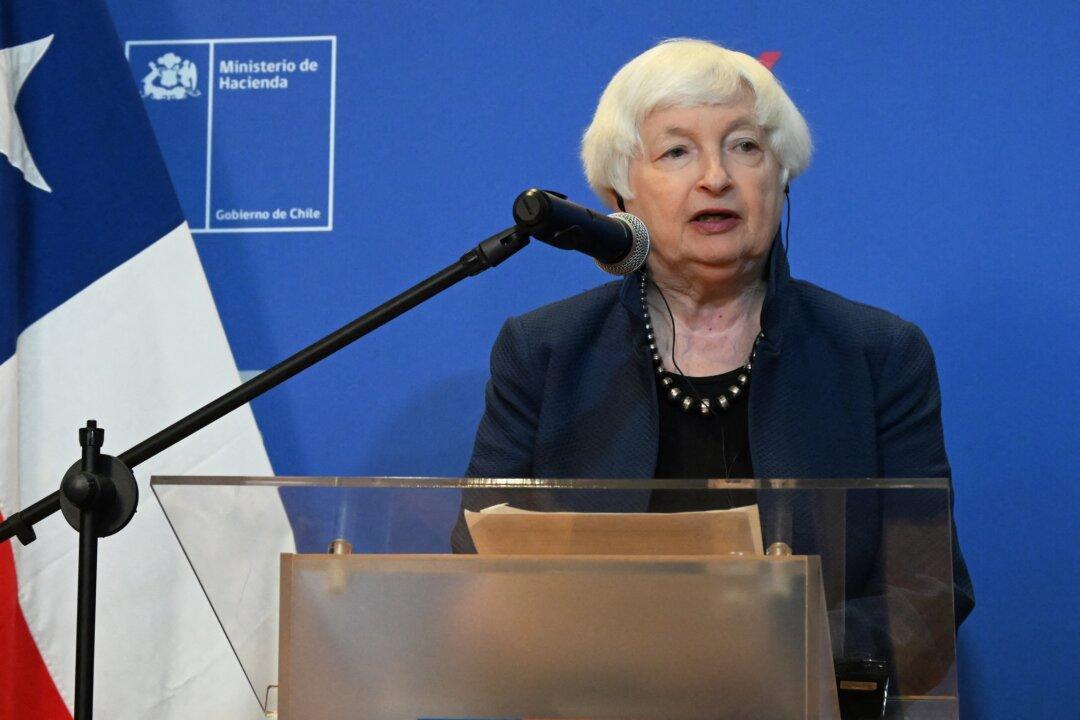Treasury Secretary Janet Yellen castigated House Republicans on Thursday for not approving a new round of funding to bolster Ukrainian forces in their war with Russia, casting Republican opposition as “nothing short of a gift” to Russian President Vladimir Putin and other adversaries of the United States and its allies.
In remarks shared with the press ahead of her meeting with German economy minister Robert Habeck in Washington on Thursday, Ms. Yellen reiterated the Biden administration’s calls for House Speaker Mike Johnson (R-La.) to schedule a vote on a $95 billion supplemental aid request that includes approximately $61 billion in new Ukraine-related spending, and tens of billions more to support Israel’s war against the Hamas terrorist group in Gaza and bolster alliances and partnerships throughout the Indo-Pacific region.





